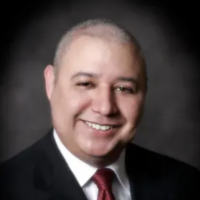Michigan City DUI-DWI Lawyer, Indiana
Sponsored Law Firm
-
 x
x

Click For More Info:
-
Stracci Law Group, PC
11890 Broadway Crown Point, IN 46307» view mapCriminal Defense, OWI & Personal Injury Law Respected. Resourceful. Relentless.
Paul maintains a strong rapport with his clients as well as with other legal professionals in the area. He is a relationship builder, who has built strong relationships.
800-928-0490
Paul Stracci
✓ VERIFIEDCriminal, Accident & Injury, White Collar Crime, DUI-DWI, Felony
Criminal Defense Attorney and Trial Lawyer at Federal and State levels
Paul Stracci is a uniquely experienced criminal trial attorney who has had remarkable success in the courtroom. He successfully defended his first mu... (more)
Alejandro Dominguez
✓ VERIFIEDDUI-DWI, Criminal
I am Alex Dominguez and I provide the highest quality, cost-efficient legal representation possible. I am an experienced trial lawyer representing cli... (more)
FREE CONSULTATION
CONTACTAlison Louise Benjamin
DUI-DWI, Personal Injury, Civil & Human Rights, Federal Appellate Practice, Federal
Status: In Good Standing
John Maksimovich
Felony, DUI-DWI, RICO Act, White Collar Crime, Traffic
Status: In Good Standing Licensed: 44 Years
FREE CONSULTATION
CONTACTSusan Kozlowski
Divorce & Family Law, DUI-DWI, Traffic, Accident & Injury, Criminal
Status: In Good Standing Licensed: 28 Years
FREE CONSULTATION
CONTACT Paul Stracci Crown Point, IN
Paul Stracci Crown Point, IN Practice AreasExpertise
Practice AreasExpertise


